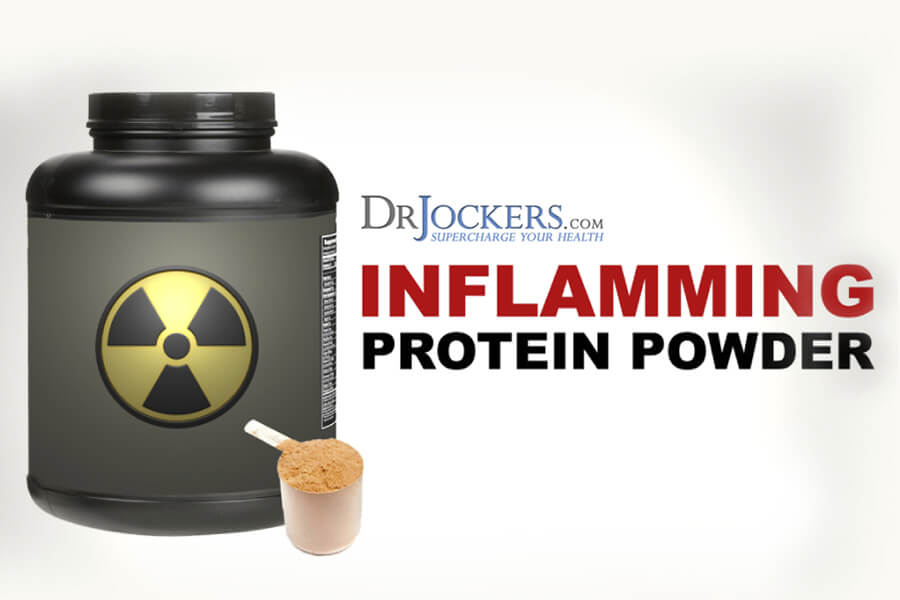
Is Your Protein Powder Inflaming You?
One of the most popular supplements in our society today is protein powder. These powders come from a variety of different sources and a number of unique manufacturing processes. Unfortunately, 95% of commercial protein powders have toxic ingredients that could be slowly inflaming your body and depleting the cellular nutrient stores.
Protein supplements can be a great addition to a healthy diet. This is due to their ability to provide essential and branched-chain amino acids in a highly absorbable form. While there are many different protein sources, only a few are of high quality. Most commercial protein powders use inferior protein sources and fill their products with artificial sweeteners and preservatives that are highly toxic.
The most common protein sources used in commercial powders include soy, egg, whey, & wheat gluten. An intelligent consumer must be very suspicious of these. Soy and gluten containing proteins (wheat, barley, rye, oat, kamut, & spelt) are highly allergenic and promote inflammatory reactions within the body (1, 2, 3).
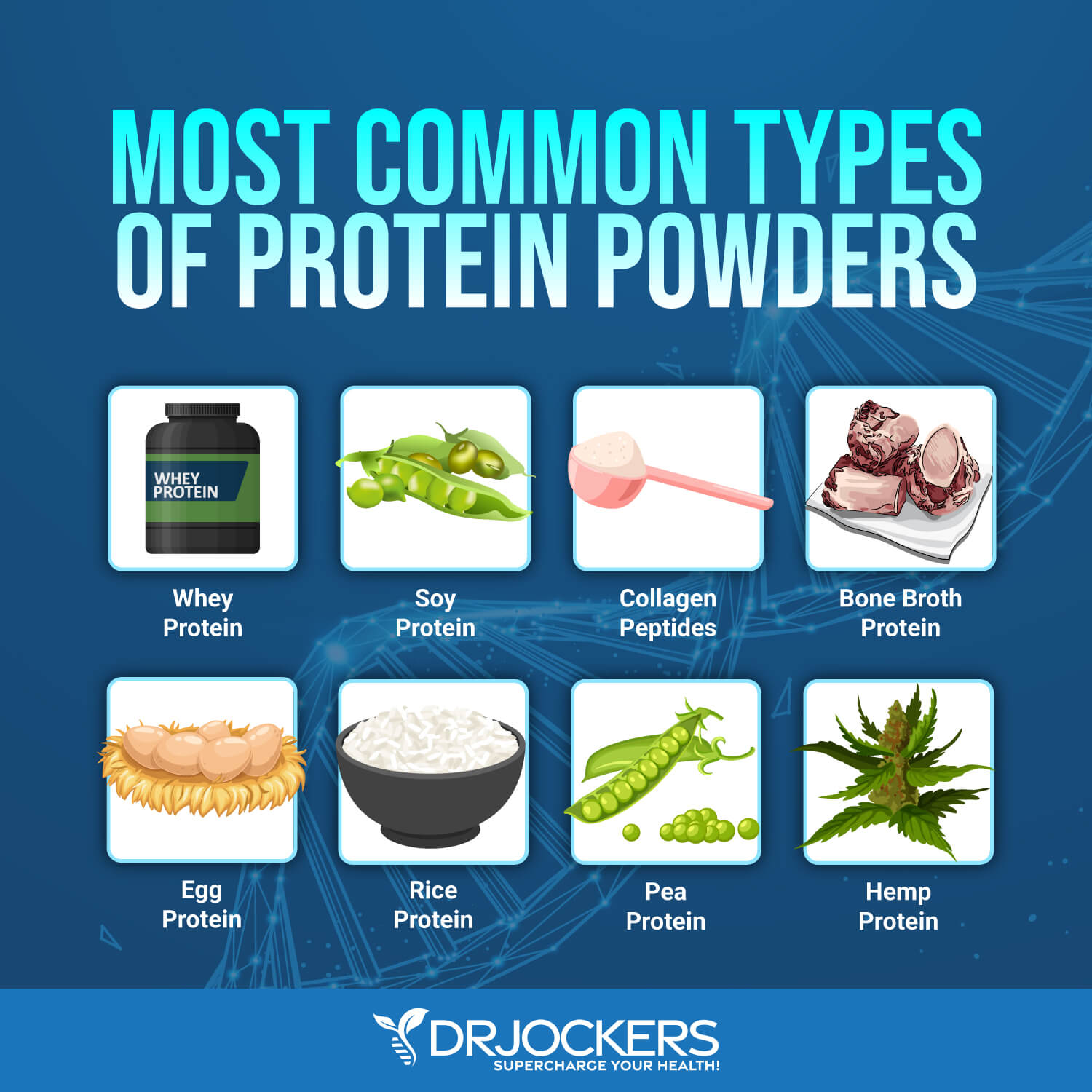
Soy Protein is an Anti-Nutrient:
Soy protein is an anti-nutrient that should be avoided for several reasons. Soy contains phytic acids that bind and pull major minerals such as calcium, magnesium, & zinc from the body (4, 5, 6). High processed soy consumption is linked with deficiencies in these major minerals.
Soy also contains enzyme inhibitors that turn off natural enzymes needed to perform critical cell functions (7, 8). Goitrogenic substances that block thyroid hormones are highly prevalent in soy foods as well (9).
Animal protein that comes from animals raised in conventional factory farms is extraordinarily toxic. These animals are pumped full of dangerous hormones and antibiotics while eating genetically modified, pesticide laden grains. This combination causes massive amounts of toxic bioaccumulation within the animal tissue and animal byproducts.
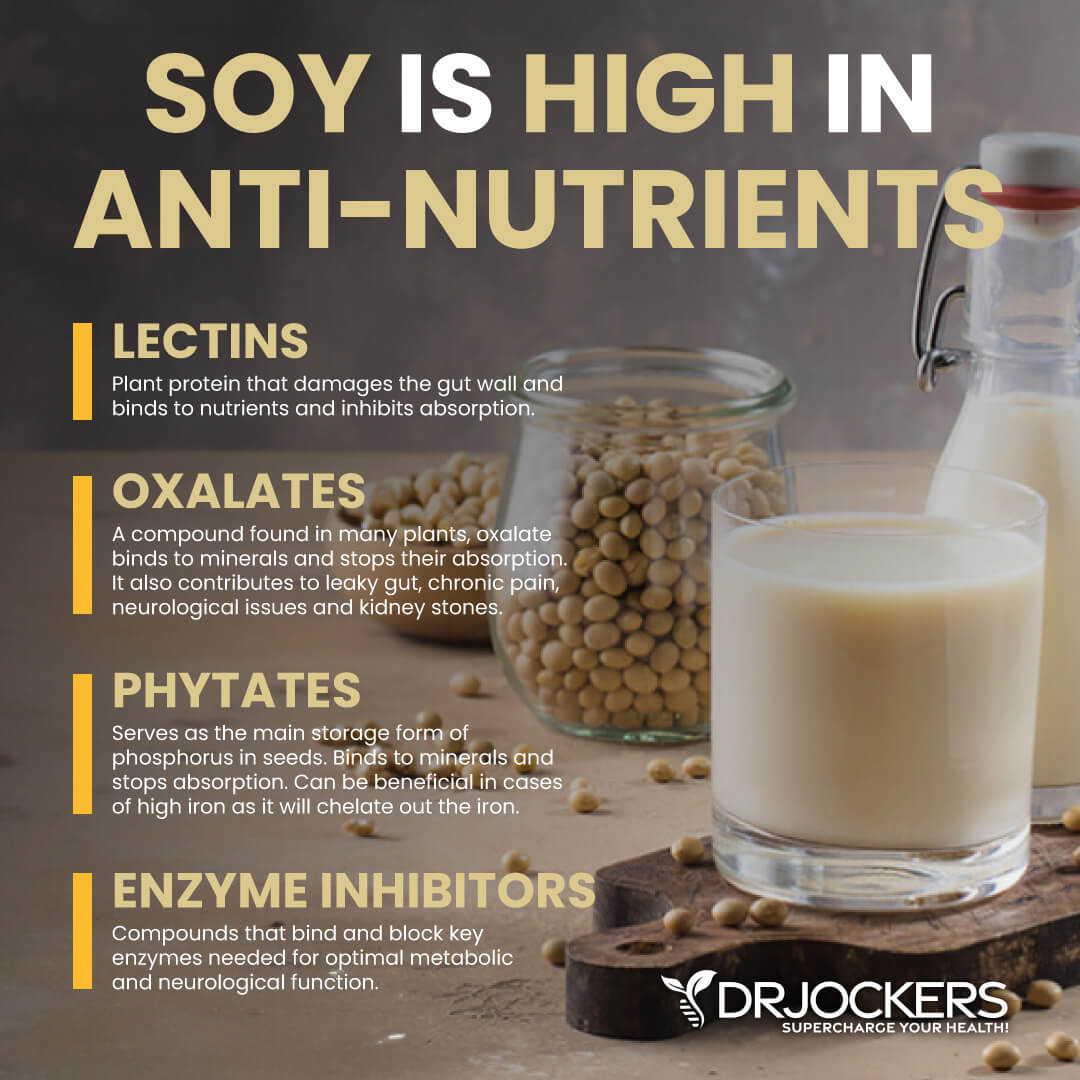
Grass-Fed Animals More Nutrient Dense:
Animals raised naturally on organic, free-range pastures that feed on grass and seeds are very healthy. Therefore, these grass-fed animal sources are very healthy forms of protein. However, manufacturers most often process these protein sources at high temperatures. This processing highly denatures the amino acids. Denatured amino acids are acidic, inflammatory, and micro-nutrient deficient. This is a hazardous product to consume.
I am a huge fan of bone broth protein because it provides glutathione boosting agents, the amino acids glycine and proline to help with liver detoxification, relaxation of the stress response, immune support, and repair of the gut lining.
We consume large amounts of muscle meats in our society, which are high in methionine and tryptophan, low in glycine and proline. This can lead to inflammation and weakening of the joint tendons, increasing the risk of joint and muscle injuries.
Consuming bone broth, organ meats, collagen/gelatin, or bone broth protein powder can help to balance the amino acids and give greater structural strength to the tendons and connective tissues of the body.
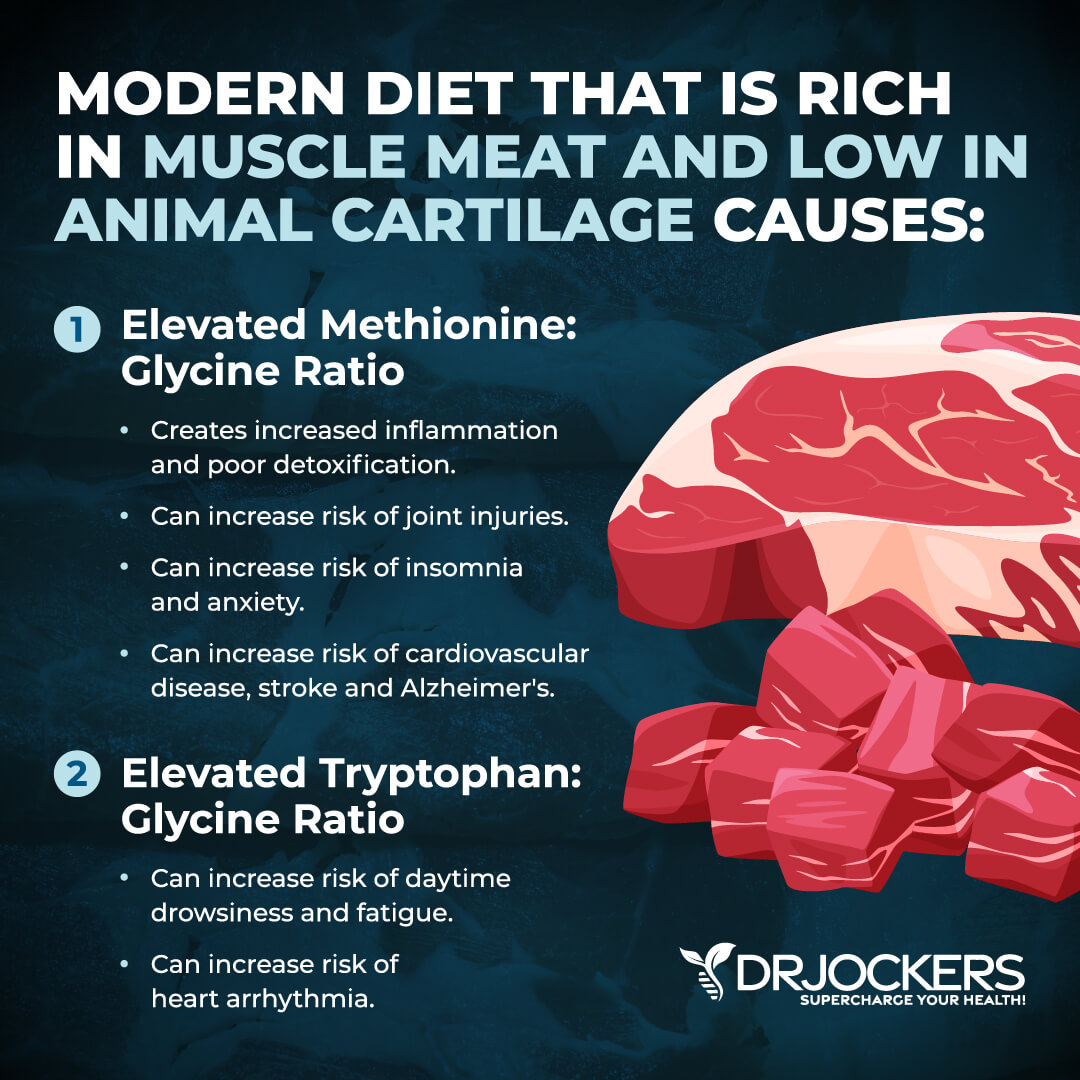
Grass-Fed Whey Protein:
Non-denatured, grass-fed whey protein concentrate (not isolate) from organic pastures is the highest quality protein source for most individuals. This form of whey protein contains beta-glucans, lactoferrins, and immunoglobins that enhance immune function.
Non-denatured whey contains all the branch chain amino acids and optimal ratios of essential amino acids (10). Finally, non-denatured whey protein is one of the best food sources for boosting cellular antioxidants such as glutathione.
I recommend Paleovalley’s Grass-fed whey protein as a protein powder. This is a great-tasting, high protein, low carbohydrate, functional food powder. It is made with an exceptional quality whey protein made from grass-fed cows and is loaded with immune supporting colostrum, which is called “liquid gold” as it has powerful immunoglobulins that support gut health and the immune system.
The milking cows are never fed grain and are not subjected to hormone or antibiotic treatments and unlike other instantized whey formulations. This whey protein is non-denatured, which preserves the natural enzymes, and it is gluten-free, grain-free, soy-free, and non-GMO.
The Best Vegetarian Proteins:
The best vegetarian proteins are from brown rice, peas, & hemp. Pea protein is considered the most hypo-allergenic protein powder, which is especially important for individuals with chronic food allergies and leaky gut syndrome. When mixed with a high quality pea or hemp protein, they form a complete protein source with all essential and branched-chain amino acids.
Hemp protein is one of the very few plant based complete protein sources. Hemp is a great source of sulfur containing amino acids methionine and cysteine, which are necessary for cellular detoxification and the production of vital enzymes. Additionally, it is rich in branched chain amino acids that are needed for muscle growth and repair.
Your protein powder should also contain medium chain triglycerides from sources such as coconut oil to improve bioavailability and aid in digestive comfort. This should never contain artificial flavorings and preservatives of any kind. This source should be sweetened with natural sources such as stevia and/or xylitol. Certain individuals may feel inflamed using a grass-fed, non-denatured whey protein. They should switch to a high quality vegan protein such as hemp, pea, or brown rice and monitor results.
On DrJockers.com, we have a fantastic vegan, hypoallergenic protein powder choice in Gut-Liver Cleanse Protein. It uses the same protein blend but contains different supplemental nutrients.
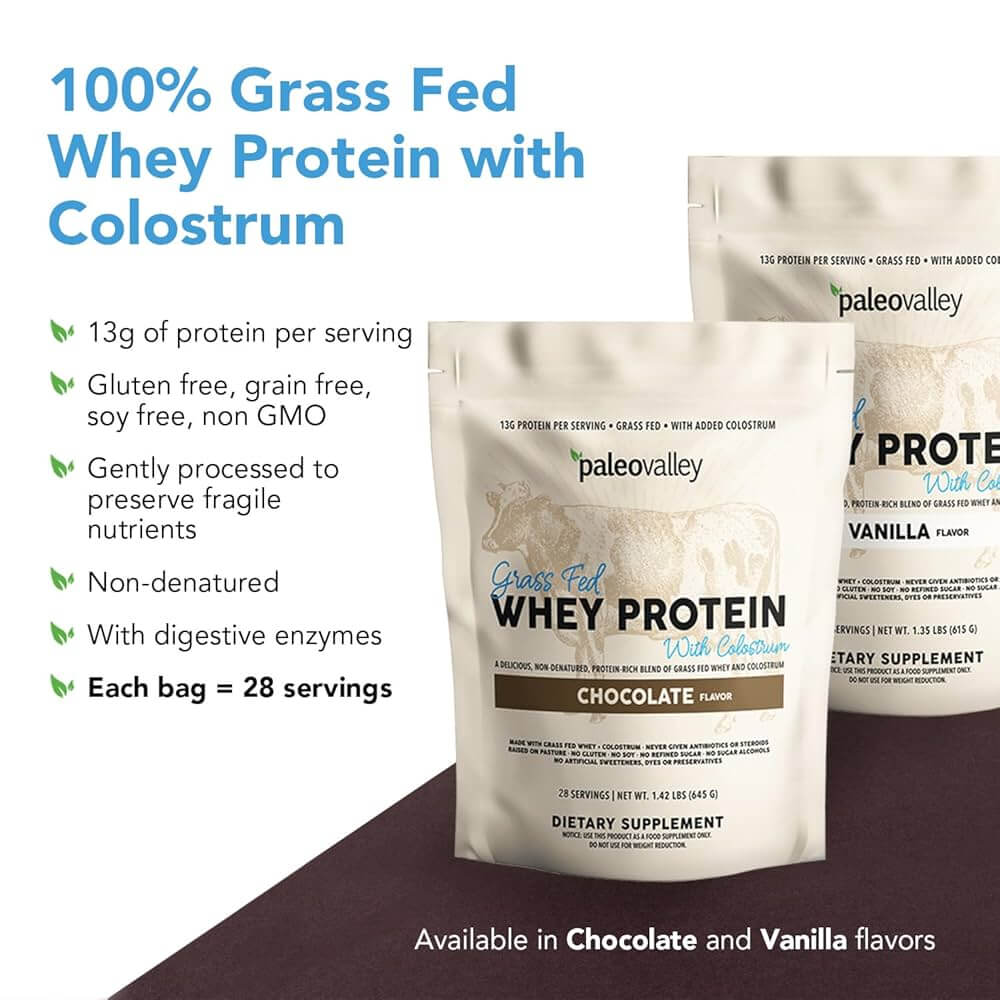
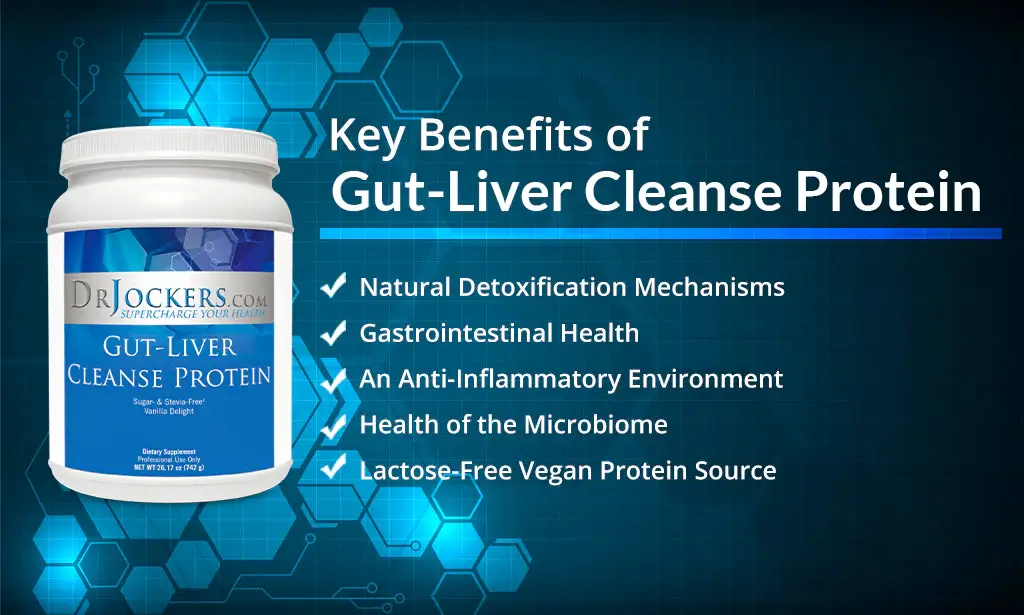



Isn’t there something incorrect in the paragraph about best vegetarian proteins…first paragraph? After listing brown rice first…it is never mentioned after that.
Hey Richard and Sondra, there is debate about brown rice protein due to higher levels of tungsten that Mike Adams from NaturalNews found in his lab. It is hypoallergenic but until we know enough about the Tungsten we aren’t quite sure. The Protein-Vite contains no brown rice protein whereas the Brain Sustain does contain some brown rice protein.
Dr. Jockers:
Have you heard of BodyWise Elancè meal replacement shake? These seem to work ok for me, but I would much rather have what you recommend, since you explain it all! 🙂 Thanks!